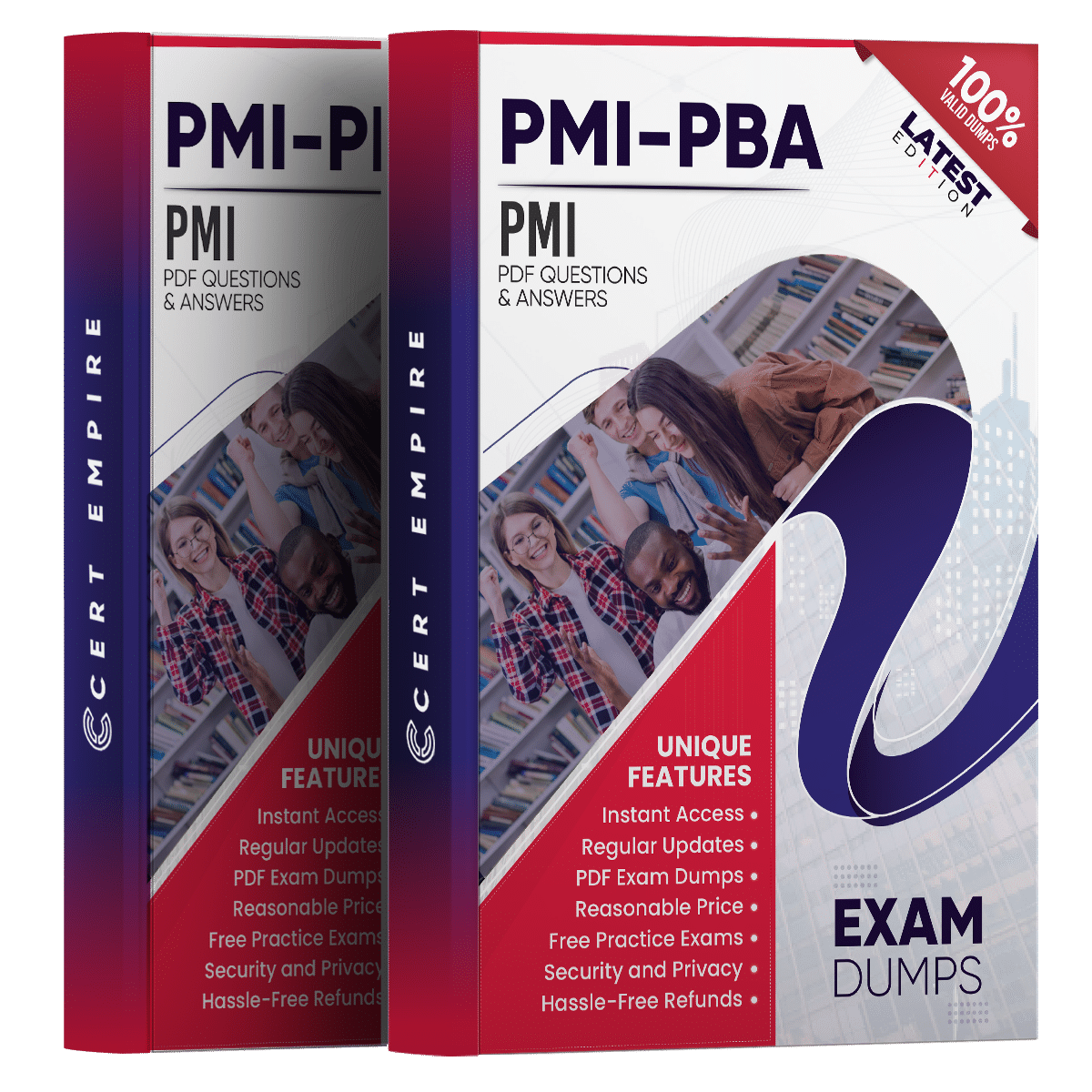About PMI-PBA Exam
Why PMI-PBA Certification is Worth Your Attention in 2025
Business analysis is at the center of decision-making and process optimization. Companies are constantly improving how they handle projects, and structured analysis plays a huge role in ensuring project success. As organizations demand better business analysis skills, the PMI Professional in Business Analysis (PMI-PBA) certification has become an important credential for professionals looking to advance their careers.
This certification is designed for those who work closely with stakeholders, define business needs, and ensure that projects align with business goals. In 2025, companies need professionals who bridge the gap between business and technology, ensuring that requirements are clearly defined and processes are efficient.
If you work in project management, business strategy, or IT analysis, getting this certification can be a game-changer. Companies need certified analysts to manage requirements, optimize processes, and assess project risks, and PMI-PBA shows that you are up to date with industry standards.
Who Should Consider Taking the PMI-PBA Exam?
This certification is ideal for professionals who deal with requirements gathering, process improvement, and stakeholder engagement. If your job involves analyzing business needs, evaluating project feasibility, or defining objectives, PMI-PBA can add credibility to your skills.
Ideal Candidates for the PMI-PBA
Business Analysts – If you work on defining business needs, stakeholder communication, and process documentation, this certification validates your expertise.
Project Managers – Many PMs perform business analysis tasks. PMI-PBA proves your ability to manage requirements, optimize processes, and improve project outcomes.
Product Owners – If you work in Agile or Scrum environments, this certification strengthens your ability to define clear user stories, functional requirements, and product roadmaps.
Consultants & Strategy Experts – If your role involves streamlining processes or improving operations, this certification adds credibility to your expertise.
IT Professionals & Developers – If you are shifting into business analysis or system design, this cert proves your understanding of business requirements, workflows, and stakeholder needs.
If you are already in a business analysis role, this certification helps you stand out in a competitive market. If you are switching fields, PMI-PBA helps fast-track your transition.
What You Gain by Earning the PMI-PBA
There’s a major difference between working as a business analyst and being a certified business analyst. PMI-PBA demonstrates your ability to apply structured frameworks and best practices in real-world business analysis scenarios.
Why Getting Certified is a Smart Career Move
Proficiency in Business Analysis – You gain hands-on expertise in elicitation techniques, requirement validation, and process modeling.
Better Career Prospects – Companies prioritize certified professionals because they bring structured approaches and industry-standard methodologies.
Higher Salary Potential – PMI-PBA certified analysts earn significantly more than non-certified professionals due to their validated expertise.
Global Recognition – PMI certifications are respected worldwide, giving you flexibility across industries and regions.
Understanding the PMI-PBA Exam Structure
The PMI-PBA exam is not just about memorization. It focuses on your ability to apply business analysis skills to real-world projects.
Exam Breakdown
Number of Questions – 200
Question Format – Multiple-choice and scenario-based questions
Time Limit – 4 hours
Passing Score – PMI does not release exact scores, but aiming for 70%+ is recommended
Languages – English and other select languages
Key Areas Covered in the Exam
Needs Assessment – Identifying business problems, evaluating opportunities, and defining project objectives.
Planning – Creating business analysis plans, stakeholder engagement strategies, and governance models.
Analysis – Gathering and documenting requirements, conducting gap analysis, and defining business cases.
Traceability & Monitoring – Ensuring business requirements are met throughout the project lifecycle.
Evaluation – Validating business solutions, assessing performance, and measuring project impact.
To pass this exam, you must have practical knowledge of business processes, stakeholder communication, and requirements engineering.
How to Prepare for the PMI-PBA and Pass with Confidence
PMI-PBA requires a structured approach to preparation.
Best Study Resources for PMI-PBA
PMI-PBA Guide & PMBOK (Project Management Body of Knowledge) – Official PMI resources provide detailed explanations of key concepts.
Business Analysis Practice Exams – Taking mock exams helps you understand the question format and test your knowledge.
Hands-on Experience – Applying business analysis concepts in real projects strengthens your practical knowledge.
PMI Study Groups & Online Forums – Engaging with other candidates and certified professionals provides useful insights and tips.
How Long Should You Study?
If you have 3+ years of business analysis experience, 6-8 weeks of study should be enough.
If you are new to business analysis, plan for 10-12 weeks of focused study with practical application.
By following a structured study plan and using a combination of official study guides, hands-on practice, and exam questions, you can pass the PMI-PBA on your first attempt.
What’s Next After Passing the PMI-PBA?
Earning a PMI-PBA certification is a valuable career milestone, but what comes after passing the exam?
Certification Validity
PMI-PBA is valid for three years.
To maintain certification, you must earn 60 Professional Development Units (PDUs) in business analysis and project management.
Career Opportunities After PMI-PBA
With business analysis skills in high demand, PMI-PBA certification opens doors to new job roles and salary increases. Common career paths include:
Senior Business Analyst – Lead business analysis efforts and stakeholder communications.
Business Process Consultant – Work with organizations to improve workflows and business efficiency.
Agile Business Analyst – Focus on Agile frameworks, product backlogs, and user stories.
Product Owner – Manage business requirements, user needs, and product roadmaps in Agile teams.
Advance to Higher PMI Certifications
PMI-PBA is a solid foundation, but professionals looking to expand their expertise may consider additional PMI certifications:
PMI-ACP (Agile Certified Practitioner) – Best for business analysts working in Agile environments.
PMP (Project Management Professional) – Ideal for those transitioning into project leadership roles.
Earning additional certifications enhances career prospects and salary potential.



dalleadams (verified owner) –
I appeared for the PMI-PBA and studied from Cert Empire as it has authentic and valid questions available for practice which helped me improve my score to 91%.